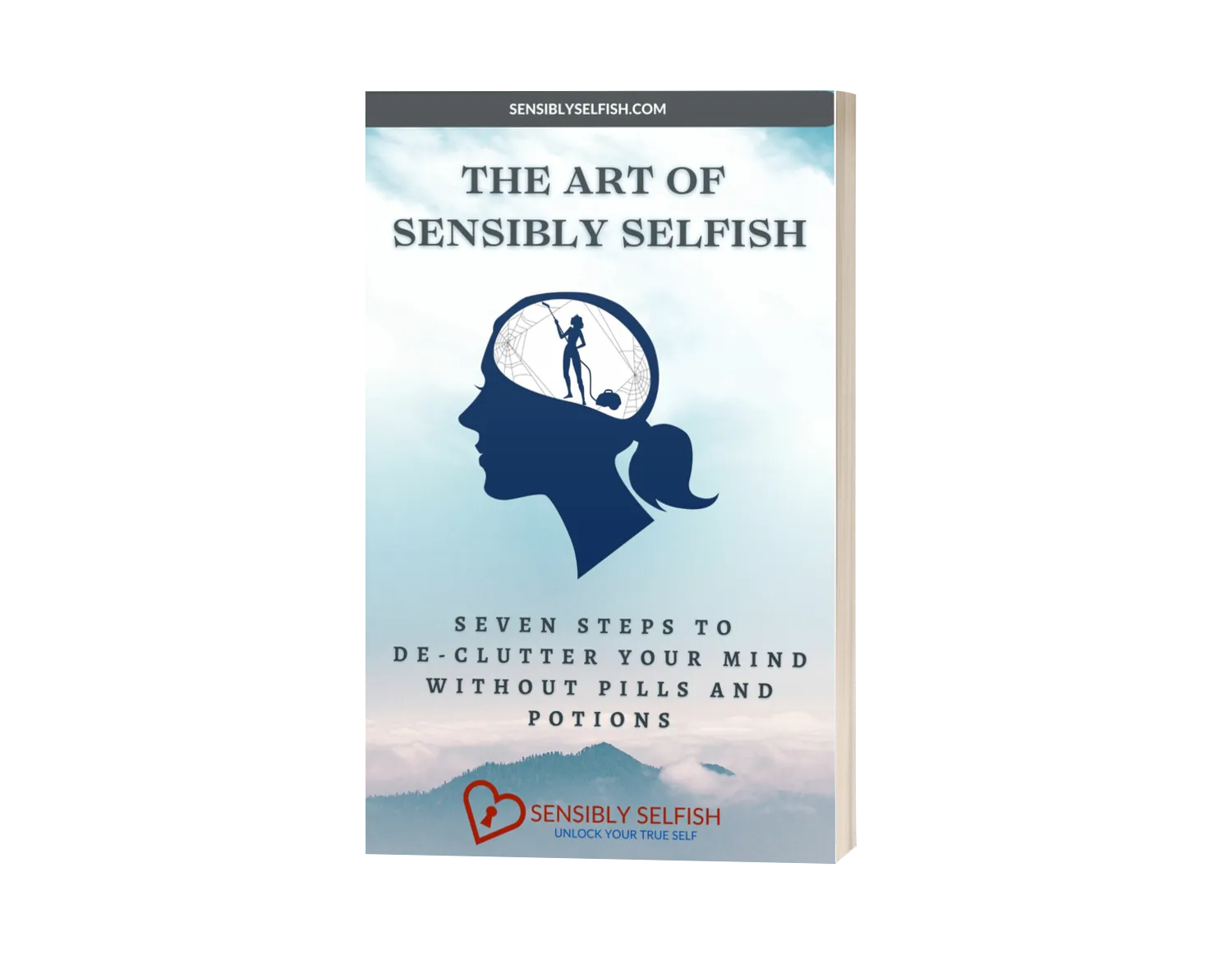A Path to Hope Amidst Grief
Finding Light in Darkness
[Toc]

The Journey Through Loss
Grief is a profound and natural response to loss, whether it be the passing of a loved one, the end of a significant relationship, or the loss of a cherished dream. Unique to each individual, grief is a deeply personal journey, with emotions that can be overwhelming and complex.
In this blog post, we will explore the multifaceted aspects of grief and provide strategies for coping with loss while seeking emotional support during these difficult times. Grief is a natural and necessary part of healing, and finding ways to navigate it with compassion and understanding is essential for emotional well-being.
The Multifaceted Aspects of Grief
Grief encompasses a range of emotions, from sadness and anger to confusion and guilt. It is important to recognize that there is no right or wrong way to grieve. Each person's experience is valid and unique. Emotions may come in waves, ebbing and flowing over time, and it is essential to be patient with oneself throughout the process.
The five stages of grief, also known as the Kubler-Ross model, were first introduced by psychiatrist Elisabeth Kübler-Ross in her book "On Death and Dying" (1969). These stages represent the emotional responses that individuals may go through when facing a significant loss, such as the death of a loved one. Not everyone will experience all these stages, and they may not necessarily follow a linear progression.

Denial
The first stage is characterized by shock and disbelief and, when confronted with loss, may initially deny the reality of the situation, creating a protective barrier against overwhelming emotions, and serving as a buffer, allowing a gradual acceptance of loss.
Anger
As denial begins to wane, anger may surface; feelings of frustration, resentment, and injustice are common during this stage. Anger can be directed toward oneself, others, or even the deceased, as a natural response to the pain and helplessness felt in the face of loss.
Bargaining
The third stage often involves attempts to negotiate with a higher power to reverse or lessen the loss. People may make promises or seek alternative solutions in a desperate attempt to regain what has been taken away. This stage is characterized by a desire to regain control and find meaning in the loss.
Depression
As the reality of the loss sets in, individuals may experience profound sadness and emotional pain. This stage involves feelings of deep grief and a sense of profound emptiness. It is crucial to differentiate between clinical depression and the normal sadness experienced during grieving.
Acceptance
The final stage of grief is characterized by a gradual acceptance of the loss and a newfound ability to move forward. This stage does not imply that the pain is entirely gone but rather that individuals have come to terms with the reality of their new circumstances. They may begin to re-engage with life and find a way to live with the loss, incorporating it into their ongoing narrative.

Acknowledging and Expressing Emotions
Acknowledging and expressing emotions is a vital step in the grieving process. Allowing yourself to feel and express the full range of emotions that arise can be both cathartic and healing. Bottling up grief and suppressing emotions may lead to prolonged distress.
Creating a safe space for yourself to process feelings is part of the process. Consider starting a journal to write down your thoughts and emotions, providing an outlet for self-reflection and emotional release. Talking to a trusted friend, family member, or therapist can also be incredibly beneficial. Sharing your feelings with someone understanding and empathetic can provide validation and support during this difficult time.
Engaging in creative outlets like art, music, or other forms of self-expression can be a powerful way to cope with grief. Creative activities allow emotions to flow freely and can serve as a means of processing complex feelings that may be difficult to express verbally.
Case Study: Jill's Journey from Grief to Fulfillment
Jill's life took an unexpected turn when she tragically lost her beloved mother. They shared a deep bond, and her sudden passing left Jill grappling with profound grief. The weight of her loss was overwhelming, and for seven long years, Jill struggled to find solace and meaning amidst the pain.
In the depths of her sorrow, Jill turned to creative outlets to cope with her emotions. She discovered the therapeutic power of illustration, a medium through which she could express her feelings and honor her mother's memory. With every stroke of the brush, Jill found catharsis and a sense of connection to her mother's spirit.
As time passed, Jill's illustrations evolved from personal expressions of grief to uplifting narratives of hope and inspiration. The transformative process of creating art became a profound source of healing for her, gradually easing the burden of grief that had weighed on her heart for years.

Remarkably, Jill's passion for illustrating books became her full-time profession. Through her work, she found purpose and fulfillment, as she not only touched the lives of others but also perpetuated the legacy of her mother's love and influence.
Jill's journey from grief to fulfillment serves as a testament to the resilience of the human spirit. Her ability to find solace and purpose in the wake of tragedy exemplifies the transformative power of creative expression and the enduring strength of love. Through her illustrations, Jill continues to inspire and uplift, offering a beacon of hope for those navigating their path through grief.
Seeking Professional Support
During the grieving process, seeking professional support can give comfort and guidance. Grief can be an overwhelming and complex emotional journey, and having a non-judgmental space to share your feelings can heal. Therapists, counselors, or grief support groups are equipped with the expertise to help you navigate the challenges of grief in a supportive and understanding manner.
A therapist or counselor specializing in grief counseling can offer valuable insights and coping strategies tailored to your unique experience. They provide a safe and confidential environment where you can openly express your emotions and thoughts without fear of judgment. Through compassionate listening and skilled guidance, these professionals can help you process your grief and find healthy ways to cope with the emotional impact of loss.
Grief support groups can also offer solace and understanding during this difficult time. Connecting with others who have experienced a similar loss can be incredibly comforting. In these groups, you may find a sense of belonging and validation as you share your experiences and learn from others who have walked a similar path. The support and camaraderie within these groups can remind you that you are not alone in your grief and that healing is possible.
Seeking professional support is not a sign of weakness but rather an act of self-compassion and strength. It takes courage to face the pain of grief and reach out for help. Whether you choose individual counseling or group support, this step can provide you with the tools and understanding you need to navigate through grief and eventually find hope and healing on your journey to recovery.

Embracing Self-Compassion
Amidst the grieving process, it is not uncommon for feelings of guilt or self-blame to arise. During intense sorrow, practice self-compassion and treat yourself with kindness and understanding. Grieving is a natural and valid response to loss, and there is no timetable for healing.
Acknowledge that it is okay to experience a wide range of emotions during this challenging time. Allow yourself to feel anger, sadness, confusion, or other emotions that may surface without judgment. Each emotion is a part of the healing process and an expression of the love and connection you shared with the person or thing you have lost.
Be patient with yourself as you navigate the depths of grief. Loss is not a linear journey, and there is no "right" way to grieve. Give yourself the time and space to process your feelings at your own pace.
When guilt or self-blame arises, remind yourself that you are human, and it is natural to experience these emotions during times of profound loss. Offer yourself the same understanding and support that you would extend to a dear friend or loved one in similar circumstances.
Ask yourself, what am I feeling? Do I wish to feel this way? If the answer is yes, that is perfectly fine. If the answer is no find another feeling to feel.

Coping Strategies for Difficult Days
When facing the challenges of grief, developing coping strategies can be a lifeline during the darkest days. Engaging in activities that bring comfort and solace can help you navigate these difficult moments.
Spending time in nature can be particularly healing. Nature's soothing presence offers a sense of serenity and connection, allowing you to find solace amidst the turmoil of grief. Take leisurely walks in the park, sit by a tranquil body of water, or observe the beauty of the natural world. Nature has an innate ability to provide moments of respite and reflection during challenging times.
Exploring relaxation techniques can also aid in easing the emotional burden of grief. Techniques such as deep breathing exercises, meditation, or gentle yoga can help you find moments of calm and grounding when you feel overwhelmed. These practices allow you to cultivate inner peace and self-awareness, creating space for healing amidst the pain.
Practicing mindfulness is a powerful coping grief strategy. Embrace the present moment, acknowledging your emotions and experiences without judgment. Mindfulness allows you to approach grief with curiosity and self-compassion, fostering a greater sense of acceptance and understanding.
Maintaining Healthy Routines
Amidst the upheaval of grief, maintaining healthy routines can offer a sense of stability and normalcy in an otherwise turbulent time. Focusing on Sensibly Selfish self-care, particularly in the realms of nutrition, exercise, and rest, nurtures emotional well-being.
Nourishing your body with nutritious foods can contribute to overall resilience during the grieving process. Although grief may affect appetite, strive to provide your body with balanced meals and stay hydrated. Nutrient-rich foods can aid in boosting your energy levels and supporting emotional regulation.
Regular exercise is a powerful tool for managing stress and enhancing mood. Engaging in physical activity, whether through gentle walks, yoga, or other preferred forms of exercise, releases endorphins that promote a sense of well-being. Exercise also offers a welcome distraction from emotional pain and allows you to reconnect with your body positively.
Adequate rest enables emotional and physical healing. Grief can disrupt sleep patterns, making it challenging to get restful sleep. Establish a soothing bedtime routine and create a calm sleep environment to encourage relaxation. Prioritize self-compassion if sleep proves elusive, allowing yourself time to rest, even if it means taking short naps during the day.
Additionally, maintaining healthy routines can offer a sense of control during a time when so much may feel uncertain. By focusing on what you can manage, such as your daily habits, you can find grounding and empowerment in the face of loss.

Honoring the Memory of the Deceased
Finding meaningful ways to honor the memory of the deceased can be a deeply healing and comforting aspect of the grieving process. Creating a lasting tribute allows you to celebrate their life and the impact they had on your own. Consider incorporating some of these heartfelt gestures into your journey of remembrance:
Memory Box
Create a memory box filled with cherished mementos, photographs, letters, or belongings that hold sentimental value. This tangible keepsake will serve as a reminder of the beautiful moments shared and the enduring love that binds you.
Planting a Tree
Planting a tree or dedicating a memorial garden in honor of your loved one can symbolize their enduring presence in your heart. As the tree grows, it becomes a living testament to their memory and a place of solace for contemplation.
Participating in Meaningful Activities
Engage in activities that were meaningful to your departed loved one. It could be something they were passionate about, a hobby they enjoyed, or a cause they supported. Participating in these activities can help you feel connected to their spirit and keep their legacy alive.
Creating a Remembrance Space
Designate a special space in your home or garden to create a remembrance corner. This space can be adorned with photographs, candles, or meaningful objects that evoke fond memories and facilitate reflection.
Writing a Letter
Consider writing a letter to your loved one, expressing your thoughts, feelings, and unspoken words. This act of writing can offer a sense of catharsis and provide a means to express emotions that may be difficult to articulate verbally.
Performing Acts of Kindness
Honor your loved one's memory by performing acts of kindness in their name. Whether it's volunteering for a cause they cared about or extending compassion to others, these gestures can carry the essence of their spirit forward.
Creating Art or a Memorial Collage
Express your emotions through art, whether it be painting, drawing, or creating a memorial collage. Art can serve as a powerful outlet for processing grief and celebrating the life of your departed loved one.

Seeking Social Support
During times of grief, seeking social support can comfort the emotional journey. Although grief can be isolating, reaching out to friends and family members can provide much-needed connection during this difficult time.
Openly sharing your thoughts and feelings with loved ones can create a safe space for emotional expression. Allow yourself to be vulnerable and honest about your grief, as genuine conversations can foster deeper connections and mutual understanding. By sharing your experiences, you allow others to support you in meaningful ways.
Communicate your needs to your support network, and let them know how they can best assist you during this period of grieving. Whether it's a listening ear, a comforting presence, or practical help with daily tasks, expressing your needs empowers your loved ones to be there for you in the most meaningful manner.
Seeking social support is not a sign of weakness but a testament to the strength of human connection. Connecting with others who care for you can alleviate feelings of isolation and remind you that you are not alone in your grief. Surrounding yourself with a supportive community can provide a sense of belonging and emotional reassurance.
If reaching out to friends or family feels challenging, consider joining a grief support group. Grief support groups offer a space to connect with individuals who have experienced similar losses and can empathize with your feelings. These groups provide a supportive community where you can find understanding, compassion, and shared experiences, further reducing feelings of isolation.
Recognizing and Accepting Triggers
Throughout the grieving process, certain events or reminders may act as triggers, intensifying feelings of grief and emotional pain. Take time to recognize and accept these triggers without judgment, as they are a natural part of the healing journey.
Triggers can take various forms, such as anniversaries, special occasions, or even seemingly mundane objects associated with the departed loved one. Instead of suppressing or avoiding these triggers, grant yourself the space to process the emotions that arise when confronted with them.
Recognizing triggers is a step toward understanding the depth of your emotions and how they connect to your loss. It is not uncommon for waves of grief to resurface unexpectedly, and it's okay to experience these emotions as they come.
Accepting triggers without judgment is an act of self-compassion. Be kind to yourself and recognize that it is normal to feel a resurgence of grief in response to certain situations. Embrace these moments as opportunities for healing and reflection, allowing yourself the time and space to process emotions as they naturally unfold.

Cultivating Hope and Meaning
Amidst the darkness of grief, cultivating hope and meaning can be a powerful catalyst for healing and renewal. While grief may feel all-consuming, seeking out sources of hope can provide a glimmer of light amid sorrow.
Engage in activities that bring joy and purpose to your life. Reconnecting with hobbies, interests, or creative pursuits can infuse your days with a sense of fulfillment and meaning. Allow these activities to serve as anchors during turbulent times, providing solace and a respite from the intensity of grief.
Finding hope does not mean forgetting or moving on from your loss. Instead, it involves weaving the memories of your loved one into the fabric of your life, honoring their legacy while embracing the possibility of a new chapter.
Grief may soften over time, but it does not disappear entirely. Acknowledge that healing is not about erasing the pain but learning to coexist with it in a way that allows you to find joy and meaning once again.
Find comfort in knowing that you are not alone in your journey. Many have walked the path of grief before you, and their stories of resilience and transformation can inspire and guide you.
Through cultivating hope and meaning, you honor the spirit of your departed loved one while also opening yourself to the possibility of new beginnings. Allow the healing process to unfold with grace and gentleness, and know that in time, life will take on new meaning, and joy will once again find its place in your heart.
Self-Compassion and Support is Strength
Grief is a transformative journey, reminding us of our connections and the significance of those we love. Seek solace in nature's beauty, the love of others, and cherished memories. Embrace self-compassion and seek support during this challenging time.
Healing is gradual, and it's okay to grieve uniquely. Through coping strategies and social support, you can find comfort and strength, rediscovering hope and meaning in life. Trust in the process, and remember seeking help is a sign of strength. Each step taken towards healing is a testament to your resilience. Embrace your grief journey, finding transformative growth and resilience along the way.
If you would like to chat about any of this post, reach out using the button below.









